When a system is taken from state i to state f along the path iaf, it is found that Q=50calandW=20cal. Along the path ibf Q=36cal. W along the path ibf is
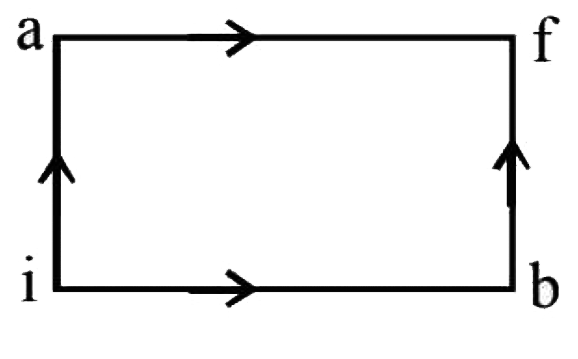
6 cal
16 cal
66 cal
14 cal
The correct Answer is:A
Step by step video & image solution for When a system is taken from state i to state f along the path iaf, it is found that Q=50 cal and W=20 cal. Along the path ibf Q=36cal. W along the path ibf is by Physics experts to help you in doubts & scoring excellent marks in Class 12 exams.
Updated on:21/07/2023Topper's Solved these Questions
- HEAT-2 BOOK - MOTIONCHAPTER - HEAT-2 EXERCISE - EXERCISE-4 (LEVEL-II)
30 Videos
- HEAT-2 BOOK - MOTIONCHAPTER - HEAT-2 EXERCISE - EXERCISE-3 (LEVEL-II)
15 Videos
- HEAT TRANSFER & THERMAL EXPANSION BOOK - MOTIONCHAPTER - HEAT TRANSFER & THERMAL EXPANSION EXERCISE - Exercise - 3 Section-B
19 Videos
- HYDROSTATIC, FLUID MECHANICS & VISCOSITYBOOK - MOTIONCHAPTER - HYDROSTATIC, FLUID MECHANICS & VISCOSITYEXERCISE - EXERCISE -3 (SECTION-B) PREVIOUS YEAR PROBLEM
7 Videos
Similar Questions
When a system is taken from state i to state f alone the path iaf, it is found that Q=50 cal and W=20 cal. Along the path ibf, Q=36 cal (figure) (a) What is W along the path ibf ? (b) If W=−13 cal for the curved return path fi, what is Q for this path ? (c) Take Ui=10 cal. What is Uf? (d) If Ub=22 cal, what is Q for the process in and for the process bf ?
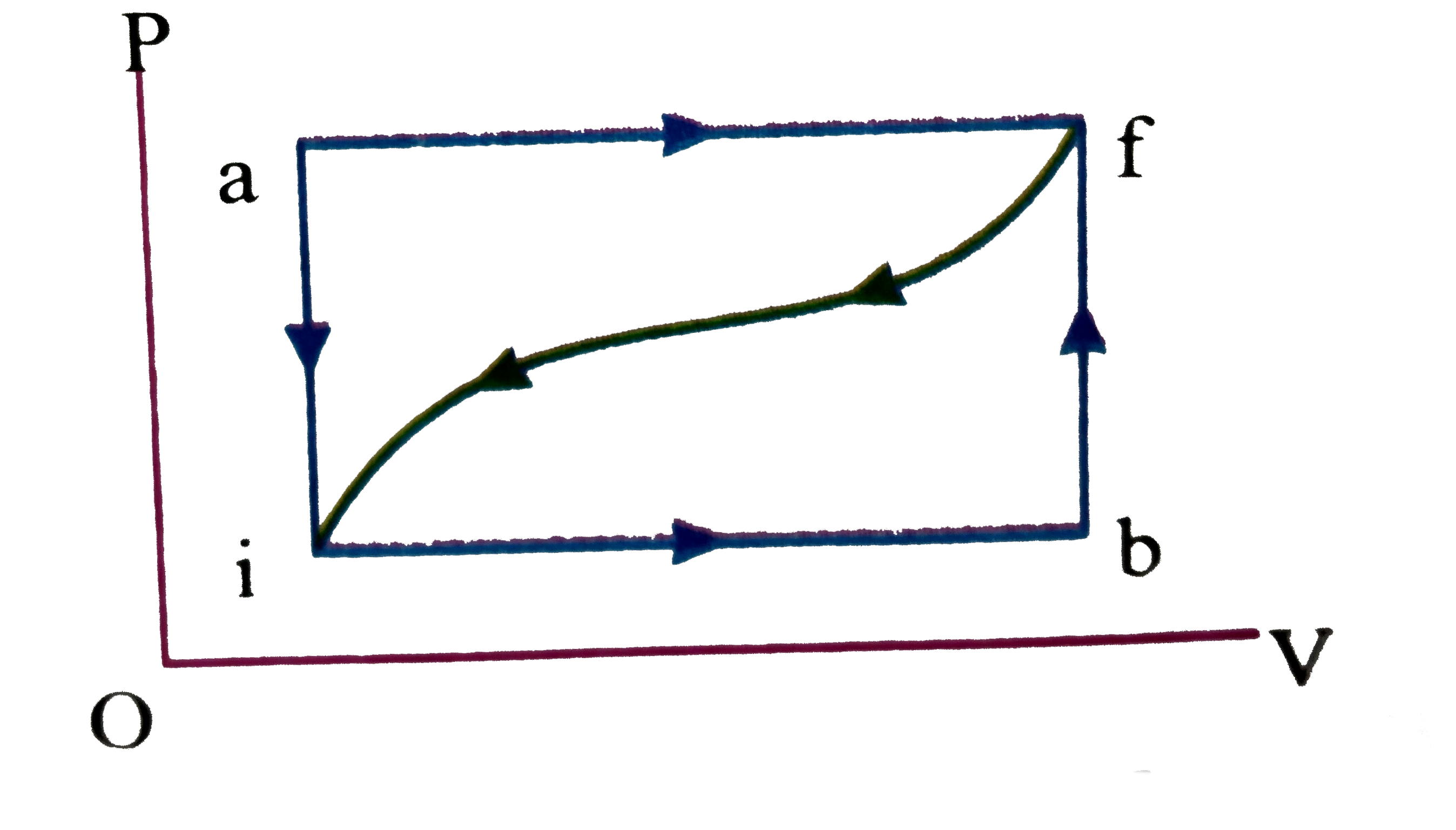
View SolutionWhen a system is taken from state I to state f along path iaf in fig - 21.23 Q = 100 cal and W = 40 cal Along path ibf Q = 72 cal . (a) what is W along path ibf ?
View Solution
Knowledge Check
When a system is taken from state I to state f along the path iaf, it is found that Q = 50 cal and W = 20 cal. Along the path ibf, Q = 36 cal. W along the path ibf is
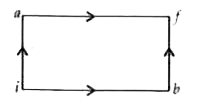 A14 calB6 calC16 calD66 cal
A14 calB6 calC16 calD66 calWhen a system is taken from state 1→2 along the path 1a2 it absorbs 50cal of heat and work done is 20cal. Along the path 1b2. Q=36cal. What is the work done along 1b2?
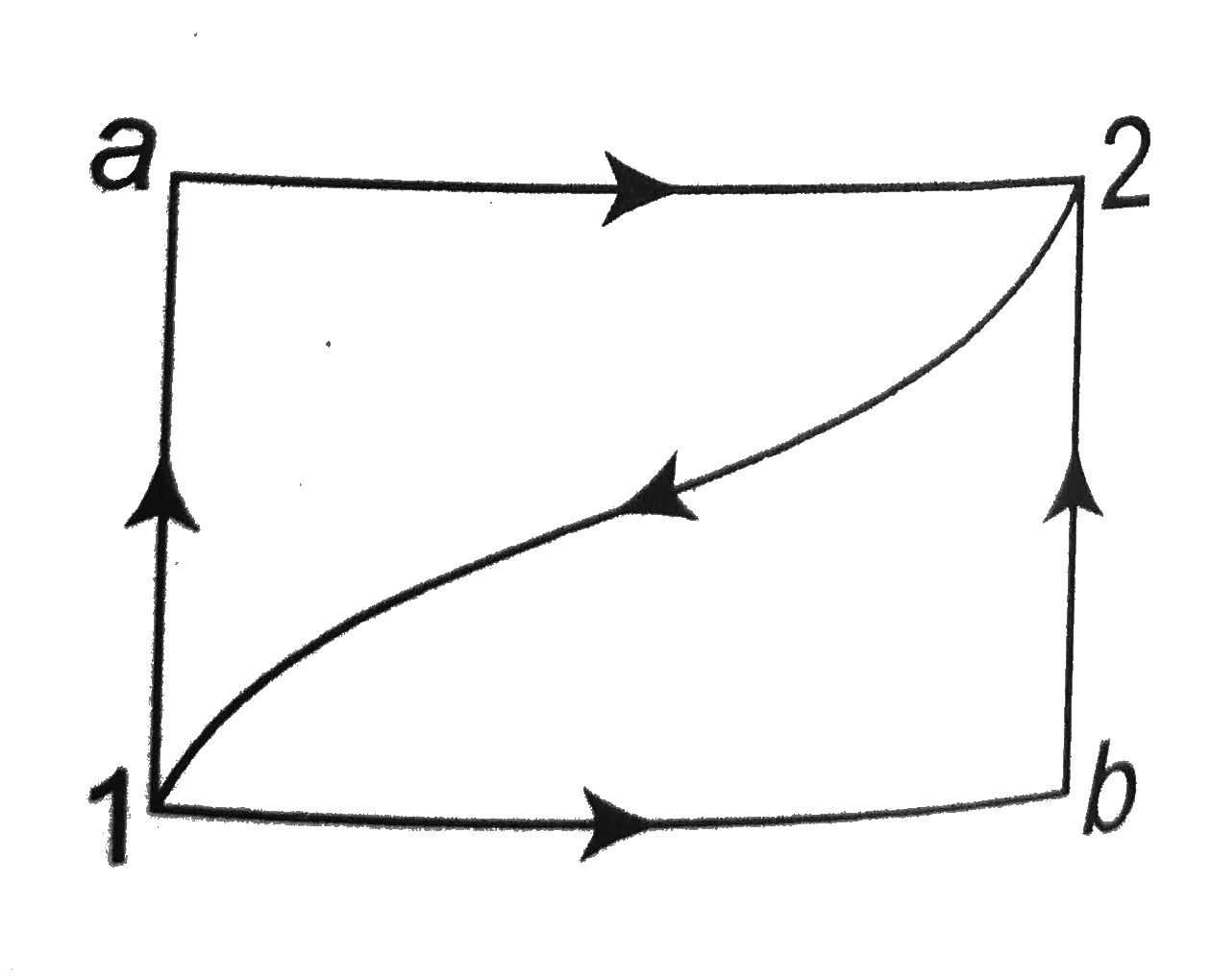 A56calB66calC16calD6cal
A56calB66calC16calD6calWhen a system is taken from state 'a' to state 'b' along the path 'acb', it is found that a quantity of heat Q = 200 J is absorbed by the system and a work W = 80 J is done by it. Along the path 'adb', Q = 144 J
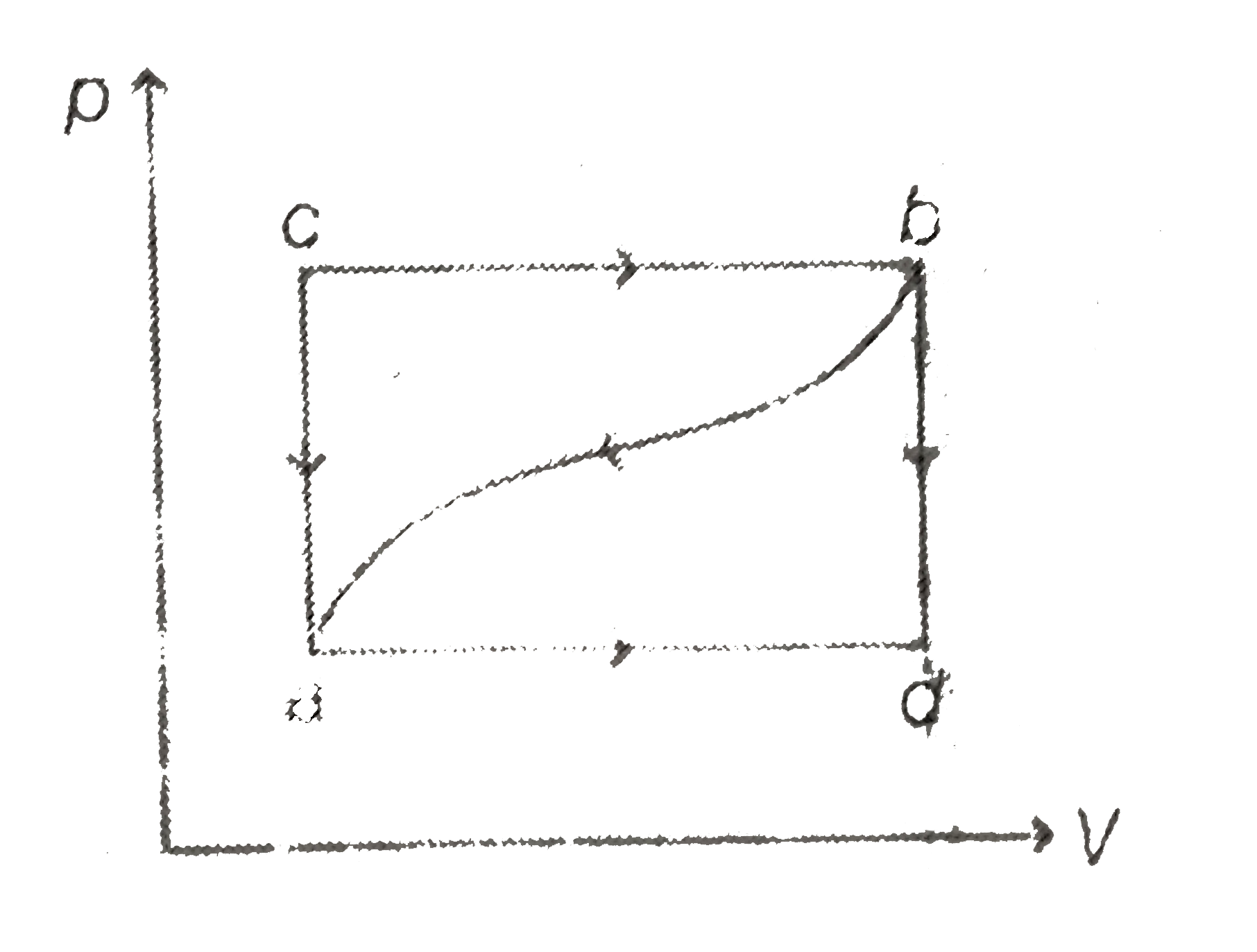
In the above question, if Ud=88J, heat absorbed for the path 'db' isA−72JB72 JC144 JD−144J
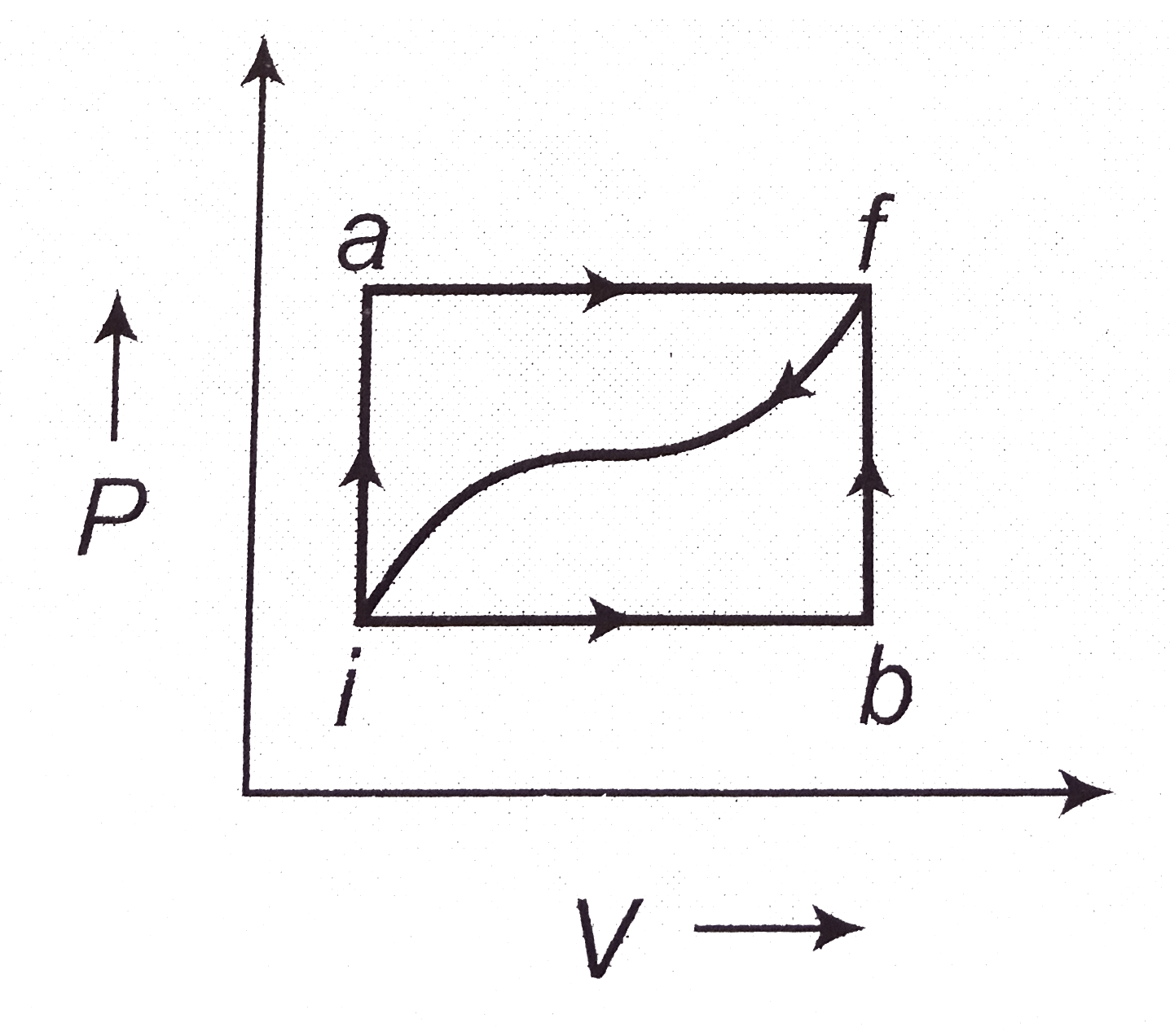
When a system is taken from a state i to a state f in Figure, along the path iaf, we find ΔQ=50cal and ΔW=20cal while during the path ibf, ΔQ=36cal. If Ui=10cal.
(a) What is U?
What is W along the path ibf?
(c ) If W=−13cal, along the curved path fi, what is ΔQ for this path?
(d) If Ub=22cal, what is ΔQ for the process ib? for bf?
View SolutionWhen a system is taken from state 'a' to state 'b' along the path 'acb', it is found that a quantity of heat Q = 200 J is absorbed by the system and a work W = 80 J is done by it. Along the path 'adb', Q = 144 J
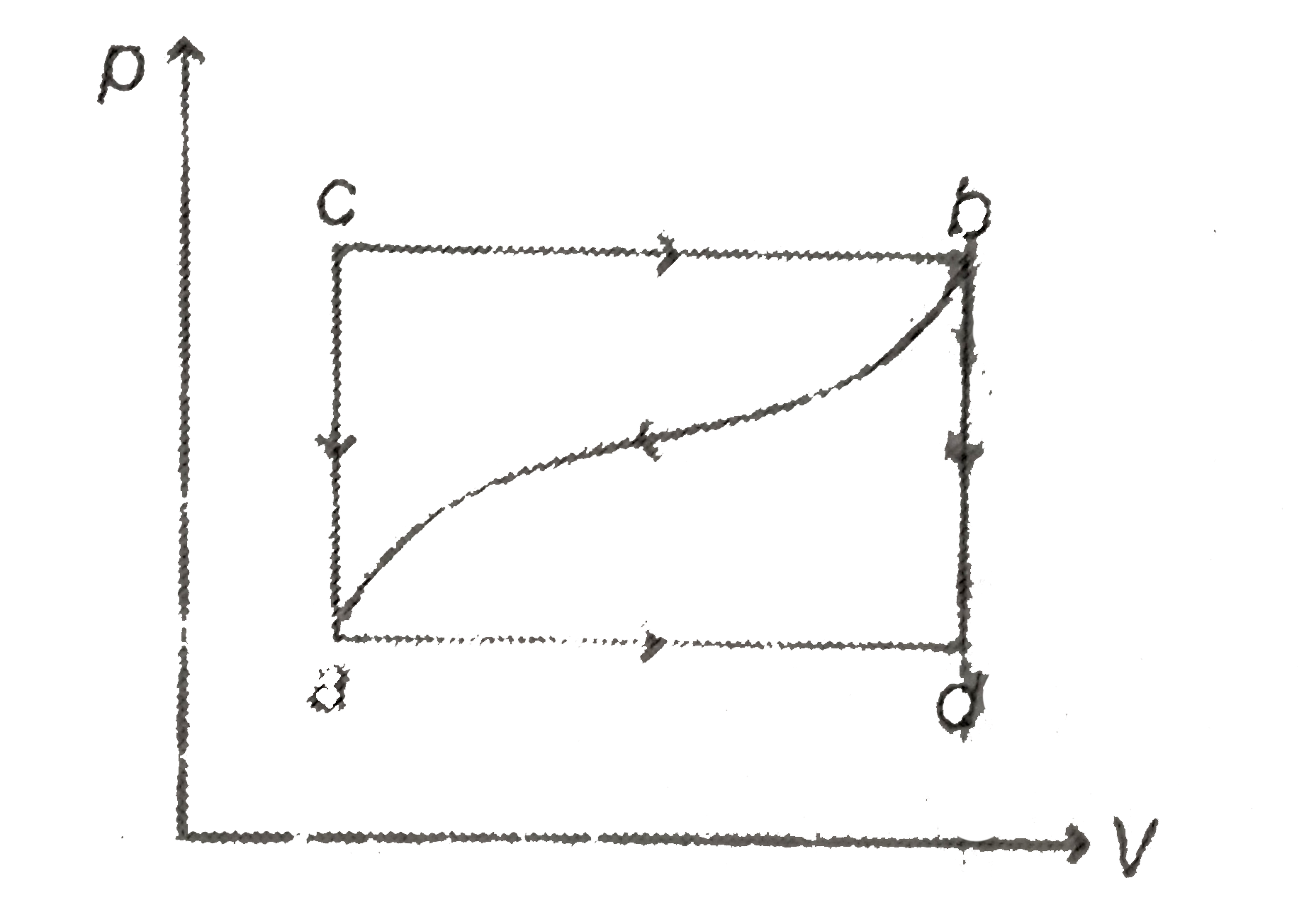
In above question, if Ua=40J, value of Ub will be
View SolutionWhen a system is taken from state 'a' to state 'b' along the path 'acb', it is found that a quantity of heat Q = 200 J is absorbed by the system and a work W = 80 J is done by it. Along the path 'adb', Q = 144 J
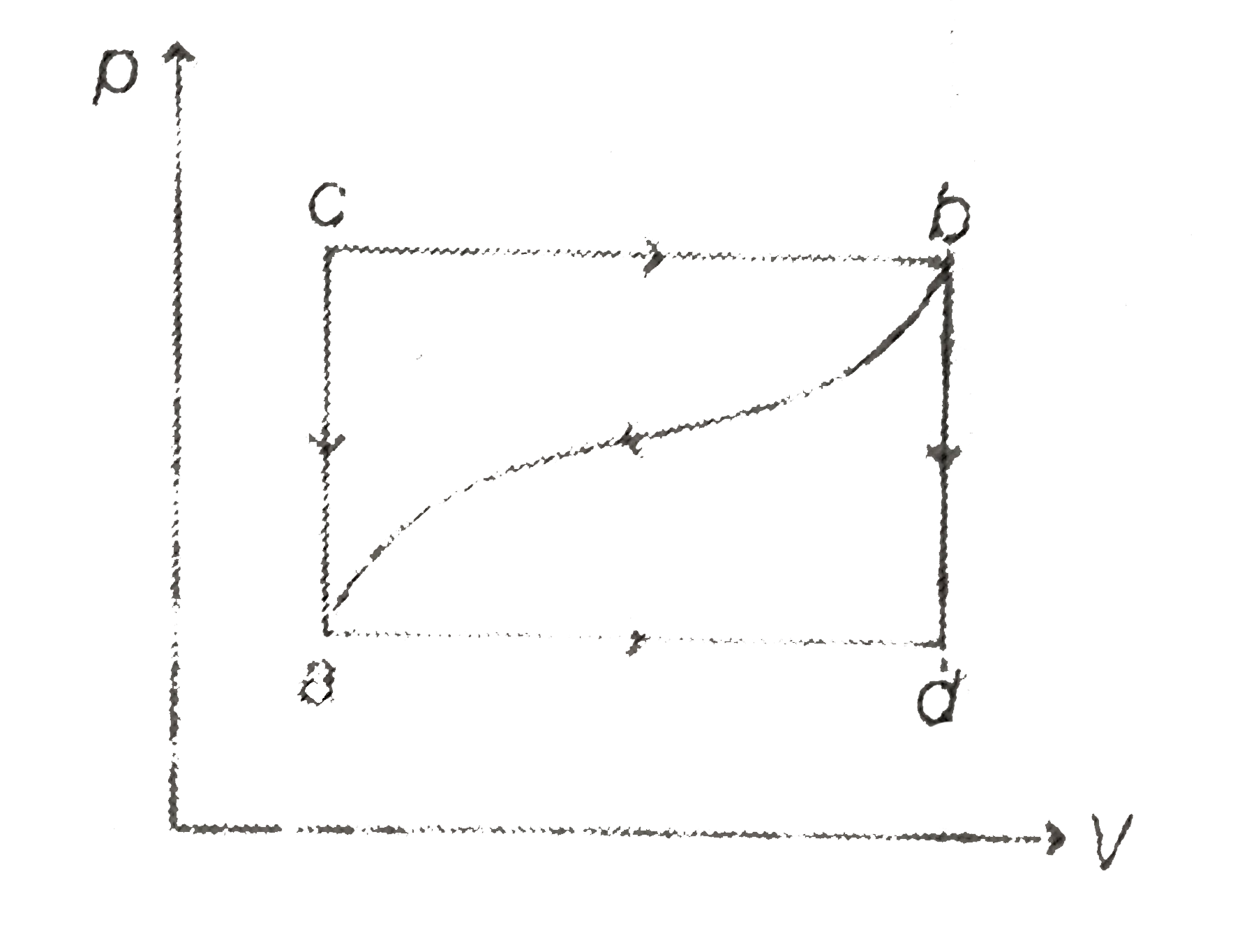
In the above question, if the work done on the system along the curved path 'ba' is 52J, heat absorbed is
View SolutionWhen a system is taken from state f along path iaf,Q=50J and W=20J. Along path ibf,Q=35J. If W=−13J for the curved return path fI,Q for this path is
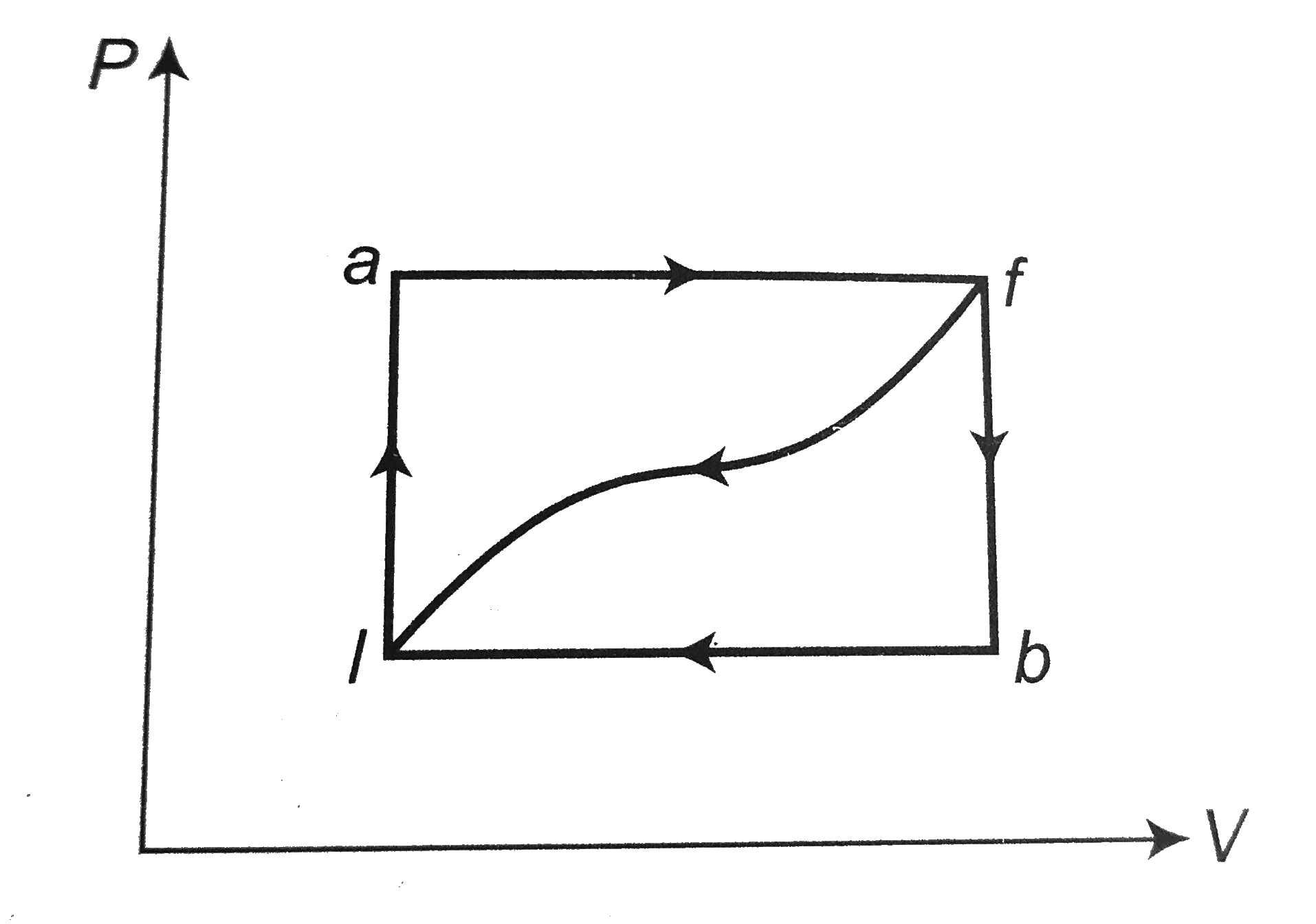
View SolutionWhen a system is taken from state 'a' to state 'b' along the path 'acd', is is found that a quantity of heat Q=200J is absorbed by the system and a work W=80J is done by it. Along the path 'adb', Q=144J. The work done along the path 'adb' is
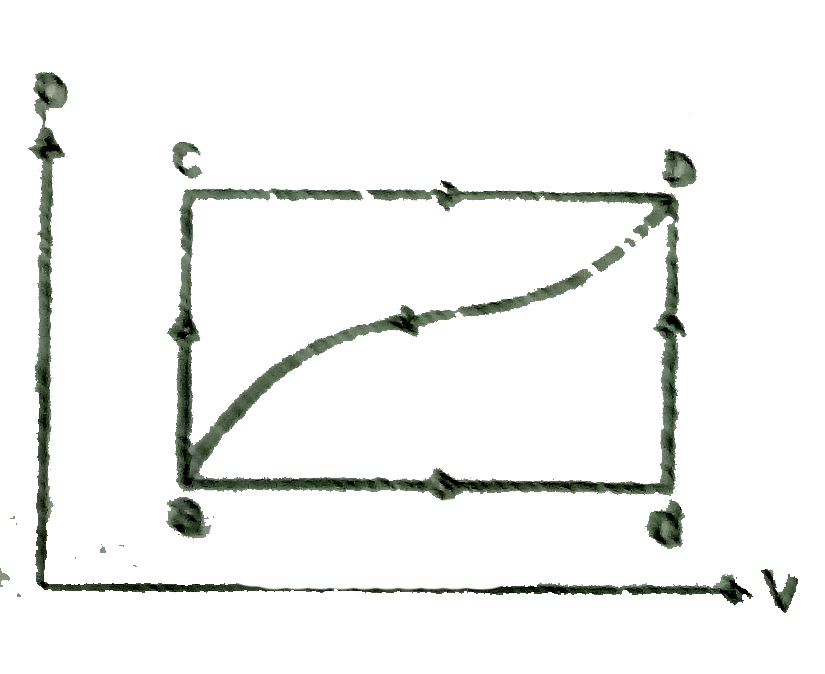
View Solution
